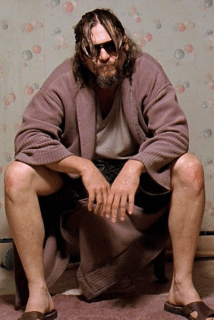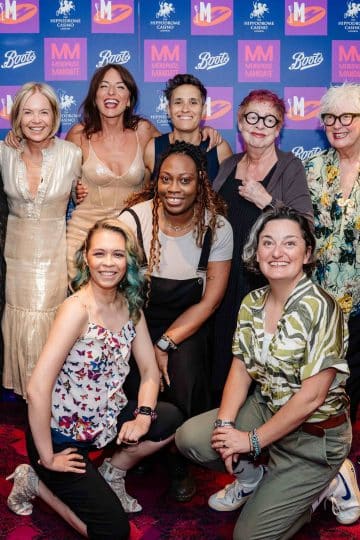Learning to love lockdown
Health
Endurance athlete and ex-SAS Who Dares WIns man James Gwinnett on how he's learned to thrive amidst the virus, even completing an ultra-marathon.
An aspiring drummer in my teens, I once found myself playing a gig at The Forum, an infamously squalid music venue in Tunbridge Wells that was a public toilet in a former life. Despite this dubious honour, over the years the venue has attracted many a band bound for greatness, including Coldplay, Muse and Oasis. On the night of my gig Biffy Clyro were the headline act.
I’ve been a huge fan of the Scottish trio’s music since that night and was recently listening to some of their back catalogue. I was struck by the poignancy of the lyrics in their acoustic 2007 hit, Machines.
I’ve started falling apart, I’m not savouring life. I’ve forgotten how good it can be to feel alive.
Since lockdown began, I have also read American Psycho, in which Bret Easton Ellis examines the blandness of society and the shallow, superficial traits that have crept into modern existence. I found myself wondering if, prior to Coronavirus taking its grip on the world, we had ‘forgotten how good it can be to feel alive’. Were we ‘savouring life’ or had we become accustomed to life’s luxuries? Were we taking things for granted?
I’ll be the first to admit that I entered lockdown with a gloomy sense of foreboding. I had recently quit my job to take on my own venture and the timing couldn’t have been worse. Business opportunities dropped like flies as affected industries – sports and travel in particular – fell victim to the virus. But I pushed through the first week undeterred, since I at least had a personal project to focus on.
I have a small admission. During that first week of isolation I stretched the ‘one type of exercise a day’ rule by doing an ultramarathon each day, but only because I had committed to an event that was cancelled. I was due to run 250km through the hot and humid rainforests of Sri Lanka and I wanted to do justice to the Mental Health Foundation, for which I was raising money. I took advice from friends (a nurse and a policeman in particular) and plodded out the distance through the streets of London, whilst keeping my distance from other pedestrians.
The experience was brutal and exhilarating in equal measure and not just because of the physical undertaking. I was also stirred on by a heart-warmingly supportive response to the challenge and with £2,000 raised, I believe it was a worthwhile venture.
Onto the next ‘challenge’. A different type of plodding; through the monotony of isolation.
It’s funny because this enforced period of ‘doing nothing’ has actually allowed me to do more. But by ‘doing more’ I’m referring to things that are meaningful. Yes, I’ve caught up with a few shows on Netflix – who hasn’t? But I’ve also expanded my exercise regime, taken up yoga (which has worked wonders for a stiff neck and back), poured through literature (including American Psycho), and been able to focus more on relationships with my nearest and dearest; I’ve spoken to my parents almost daily and caught up with friends far more regularly than I otherwise would have. What’s more, my girlfriend (of not very many months!) and I decided to lock down together and the relationship has blossomed.
Whenever I take on an ultramarathon, I adopt the mindset that as long as you continue to put one foot in front of the other, you’ll gradually get closer and closer to the finish line. I use this metaphor in any difficult situation; the concept that no matter how tough things may seem, the end will come. Winston Churchill put it aptly, “If you’re going through hell, keep going.”
Talking about Machines, Biffy’s singer and guitarist Simon Neil has similarly said, “No matter what you go through there’s always hope. You can make yourself happy.”
For me, that quote summarises our current state of isolation. Importantly, Neil didn’t mean forcing ourselves to be happy. He meant taking a different look, if necessary, at how we see life. Yes, Coronavirus has forced us to do this, but perhaps that metaphorical reset isn’t such a bad thing.
It’s part of human nature to solve problems and use challenges as a positive way of developing. That’s in our very essence. It allows us to view threatening situations from different perspectives, to identify means of addressing the issues and overcome hardship and limitations. With this mindset, lockdown can be an opportunity to challenge ourselves to expand our minds and be creative in order to find happiness.
Isolation is nevertheless a daunting proposition for many and my advice to anyone struggling is two-fold. Set yourself goals and outline how you’re going to complete them.
By goals I’m referring to the meaningful activities I mentioned earlier; things that expand our minds or provide us with a sense of satisfaction; learning a new skill, reading a classic novel, completing that DIY task you’ve been meaning to get to for months. Activities that are therapeutic help with stress and tangible goals give us a sense of fulfilment on completion. Focus on your relationships too.
If you’re struggling with daily structure, write a list each evening outlining what you’re going to achieve the next day. The order of the tasks is also key; do the task you least want to do first, so you don’t put it off. Broken down into bite-sized chunks, things start to make much more sense.
What can lockdown ultimately teach us? To look at things differently? Not to take things for granted? I certainly hope so. Imagine how great it will feel to enjoy life’s luxuries when we’re allowed to do so; to eat in a restaurant, visit a foreign country, swim in an ocean. Or simply hug our friends and family.
The important lesson is that we each have the ability to make adjustments and unlock the potential in ourselves. It is my hope that we emerge from all this having unlocked our potential, savouring life and remembering how good it can be to feel alive.
Follow James on Instagram at: @jamesgwinnett.

Join The Book of Man
Sign up to our daily newsletters to join the frontline of the revolution in masculinity.



















